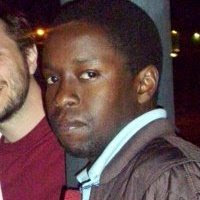There is no easy way to say this. For over two weeks now, i have been taking endless strolls down Main Street, staring into the humid air whenever i see a Yellow Cab and occasionally making an abrupt stop just to be sure i did not miss a certain Abdul Sharif. He has not been answering his phone lately, and i am yet to see him again at the shady part of Pershing Road, outside the Westin Crown Center, where he once had been one of three cab drivers manically breaking down the business for me.
Like the two other men, Sharif is originally from Somalia, one of hundreds of immigrants from the Horn of Africa who have embraced the trade in Kansas City, eventually forming a disproportionate number of the entire cab-driving force here. The problem is that they tend to look alike, and even their Abdulesque names can be excitingly similar. If you are not careful, or at least if you are as unlucky as i have been, you will see so many Abdul Sharifs in just one yellow moment. The images will be fleeting.
But the real Abdul Sharif, for all his recent reticence, had been a darling when i met him, eloquently letting me into the joy and agony of being a cab driver in a new city. Even as he announced that "i was not born to be a cab driver" early in the interview, Sharif was at once comfortable with his keys. He never struck me as a guy afraid of commitment, and i let him know that there was a good chance we could do it again. I was wrong. When all the voice messages have been counted, and when the somber picture of all the empty stares has been drawn, my energy will have taken a big hit. Sharif will also count his losses, or at least he will not know why he should do the math.
The story was supposed to be a human-interest feature about why Somali immigrants were embracing cabs in such huge numbers in Kansas City, and how the business helped them adjust to a new life away from home. On the face of it, the questions would range from the simple (Do you enjoy what you do?)to the provocative (Is there any other job you would rather be doing?) and to the intense(What's your worst experince as a cab driver?). The feel-good nature of the story far outweighed any of the embarrassing questions i may have had to ask, and this particular story was of the kind where the questions could be legion. Still, i told Sharif, i would keep the queries germane to my original pitch. My draft generated even more questions, but the now-futile hunt for Sharif and company means that they may forever be unanswered. What's more, i may never know why these men were reluctant to take it the extra mile.
If truth be told, I have seen this before. Only that i am experiencing it away from home, inflicted upon me by men i thought should not be nearly as paranoid about journalists as some of the people i have interviewed in Kampala. I hate it that their possible paranoia now means that i may also have to be paranoid about their silent intentions. If Sharif and company have done me any favor, it has to be that they have done their best to improve my aptitude for patience. I still want to meet them, of course, not least because the list of questions keeps growing, but essentially because they have not given me the last word. Kansas City is not the place that is going to teach me how frustrating interview subjects can sometimes be, yet this example is a hell of a good one insofar as it is a test of my tenacity. And here's why: Ordinarily, i could forget about Abdul Sharif and friends, find other cab drivers and tell the story anew (but maybe not too differently). No, because that's no way to learn something new, and since that's the simple way out. I have intriguing questions that only those three men could answer, and so I choose to hang in there.
Subscribe to:
Post Comments (Atom)

No comments:
Post a Comment